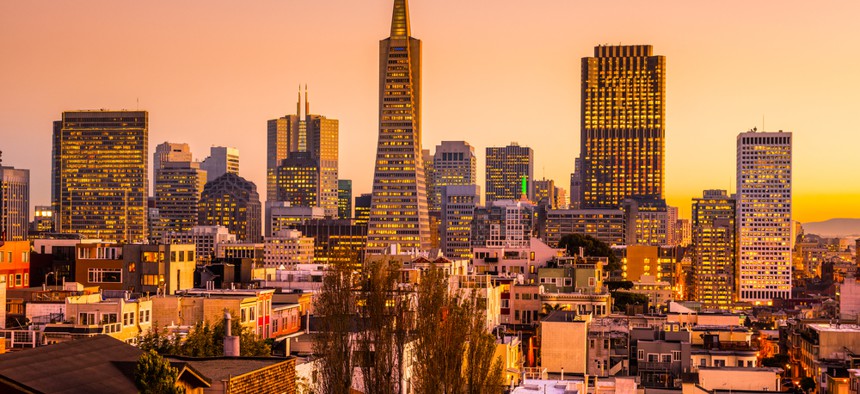Would Obama’s Paid Sick Leave Proposal Actually Work? Look to San Francisco.

Luciano Mortula / Shutterstock.com

Connecting state and local government leaders
The city's workers—and businesses—have reaped the benefits of a law that's been on the books for nearly a decade.
President Obama's call to Congress last week to pass paid sick leave laws for workers marks a renewed push to make family leave the norm in the U.S. In Tuesday night's State of the Union address, Obama's expected to expound on that proposal, encouraging passage of a mandatory paid sick leave measure and asking Congress for more than $2 billion for states to create their own programs.
Among its developed peers, the U.S. is the only nation without a national requirement for paid sick leave. But in San Francisco, the first U.S. jurisdiction to enact such a law, the practice is nearly a decade old. The city's ordinance stipulates that workers accrue one hour of leave per 30 hours worked. The bill Obama endorses, the Healthy Families Act, follows the same rules, and allows for up to seven days of paid leave (San Francisco's version allows for up to either five or nine days, depending on the size of the company.)
San Francisco first enacted the ordinance in 2007. And in the years since, the city's workers—and businesses—have reaped the benefits.
"San Francisco's economy is booming," Jim Lazarus, senior vice president for policy at the San Francisco Chamber of Commerce, told The New York Times last year about the effects of the city's sick leave law.
Like the debate over raising the minimum wage—a policy Obama proposed in last year's address—critics argue that a national paid sick leave law would hurt businesses' bottom lines. To compensate, they'd have to cut wages and jobs.
"If they could afford it, they would," Helen Darling, president of the National Business Group on Health, told The Washington Post about such a law.
But Lazarus told The New York Times that the effect on employers has been "minimal." San Francisco employers back him up: In a 2011 study on the effects of the law, six of seven reported no negative impact on profitability.
For workers, the policy has significantly boosted morale; according to a December study in the American Journal of Public Health, firms that instituted a sick leave policy after the San Francisco law passed were more likely to report higher morale.
"They value their jobs more," Arindrajit Dube, an economics professor at the University of Massachusetts at Amherst and a coauthor of the study, told National Journal.
It's not just employees. Overwhelmingly, employers in San Francisco support the policy—a finding that surprised the study's authors. While businesses may have been hesitant to implement a paid sick leave policy on their own, Dube said that once they'd had experience with it, 72 percent of the employers they surveyed supported the policy.
The San Francisco policy hasn't been without problems. Dube and his team found that to comply with the law, some employers have had to cut other compensation, such as vacation days. Stanford economist Nick Bloom told National Journal that, under a federal policy, this phenomenon could be more detrimental in a part of the country that's not experiencing such economic growth.
"The extent to which there's been any cost, in that it's maybe slightly more expensive to employ people, it would not be very obvious, because we're booming economically," Bloom said. "Take parts of the Midwest that are still in heavy recession—they may struggle more if there's a national sick leave policy."
But Bloom said the benefits of paid sick leave outweigh the costs. And though it may be more difficult for other regions to adapt, it makes more sense to implement a policy on the federal level than just city-by-city.
"If there are two cities, and one introduces generous sick leave and the other doesn't, you risk that mobile businesses may actually move toward the city that doesn't have the sick leave policy," he said. "Competition between locations to attract businesses can lead to a race to the bottom."
Like all the proposals Obama will advocate in Tuesday's address, the paid sick leave measure will face a Republican-controlled Congress bent on fighting the president. Should lawmakers look to San Francisco's example, though, they may like what they see.
(Image by Luciano Mortula / Shutterstock.com)
NEXT STORY: A Big First Step for Snow Plowing Transparency





